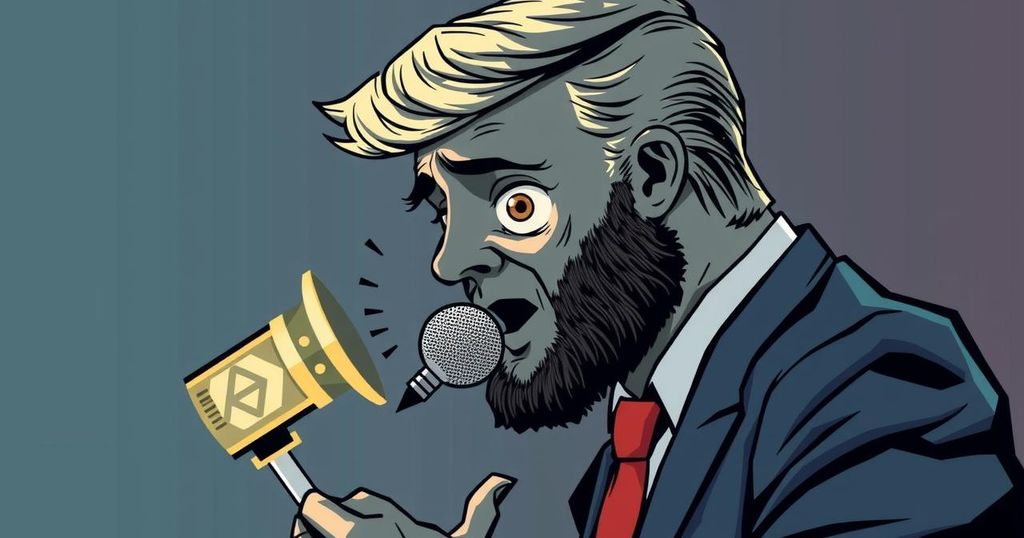Comedian Tony Hinchcliffe’s racist jokes at a Trump rally have sparked outrage, particularly within the Puerto Rican community, highlighting their pivotal role in upcoming elections. His comments were met with swift condemnation from political leaders, prompting discussions about the importance of respecting and prioritizing Puerto Rican issues in American politics.
In the context of a recent rally for Donald Trump at Madison Square Garden, comedian Tony Hinchcliffe delivered a series of controversial jokes that sparked widespread backlash from various communities, particularly focusing on the Puerto Rican demographic. His incendiary remarks included a description of Puerto Rico as “a floating island of garbage” and an objectionable assertion regarding Latino families. These comments prompted sharp criticism across the political spectrum. Despite Hinchcliffe’s assertion that his comments were intended as humor, they have raised significant concerns about the implications for the Puerto Rican voting community, especially as the election approaches. Many key figures, including Trump allies and local leaders, denounced the jokes as offensive and harmful, emphasizing the need for respect and recognition of Puerto Rican issues within the political arena. The Trump campaign attempted to mitigate the fallout by distancing itself from Hinchcliffe’s remarks, yet the backlash resonated strongly within the Puerto Rican community, which has a notable presence in swing states crucial for the election. In response to Hinchcliffe’s comments, civic leaders and political figures articulated their disappointment and frustration, framing the incident as not just a matter of comedy but a serious affront to Puerto Rican dignity and agency. Activists and community members have begun mobilizing, viewing the incident as a catalyst for political engagement leading up to the elections. The atmosphere surrounding the rally coincided with Vice President Harris’s address in Philadelphia, where she specifically discussed her commitments to Puerto Rico, illustrating the stark contrast between the priorities of the two political factions. Overall, as the election date approaches, the repercussions of Hinchcliffe’s set could very well influence voter turnout and sentiments among Puerto Rican and other Latino communities across the United States, reflecting the ongoing struggles with representation and respect in American politics.
The recent incident involving comedian Tony Hinchcliffe serves as a critical reminder of the delicate political landscape surrounding Puerto Rican voters in the United States. With a significant population residing in key battleground states such as Pennsylvania, Puerto Rican voters have historically leaned Democratic but have been courted by Republican initiatives as well. Hinchcliffe’s comments at a Trump rally were met with widespread outcry, particularly regarding the timing and context as the community prepares to engage in the upcoming elections. This incident underscores broader conversations about race, representation, and the impact of discrimination on voter mobilization, especially among minority groups.
The remarks made by Tony Hinchcliffe at the Trump rally have triggered a serious reflection within the Puerto Rican community about their political representation and the ongoing challenges they face in gaining respect and acknowledgment. As these groups prepare for the upcoming elections, there is potential for increased mobilization and solidarity among various minority communities, driven by a shared sentiment against racial and ethnic discrimination. The incident serves as a poignant example of the interplay between humor and harm within the political discourse leading up to elections.
Original Source: time.com






